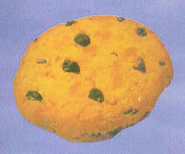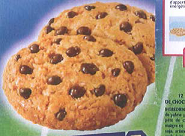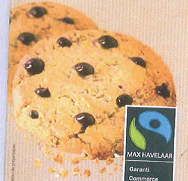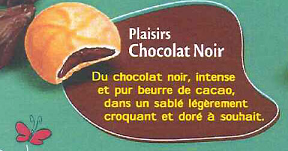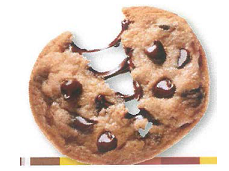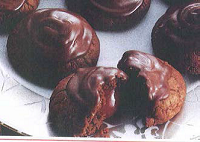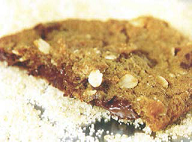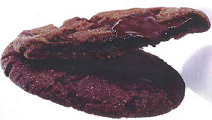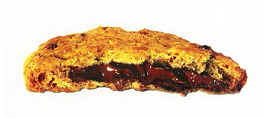

Invalidity of Community Design for Chocolate filled Cookie
March 04, 2015
Categories:
Post date:
4. March 2015 - 13:29
The General Court of the European Union (EGC) decided that the invisible character of a product - in this case a cookie - does not relate to the appearance and therefore cannot taken into account in the examination of the requirements to fulfill for registration. An exception occurs only when the design meets the requirements of a complex product. Therefore, it has to be composed of multiple components which can be replaced permitting disassembly and re-assembly. For these reasons, this registered design for a chocolate filled cookie was invalidated (Judgment dated 9 September 2014; Case No.: T 494/12).
Background of the Case and Subject Matter
On 25 March 2009, the applicant Biscuits Poult SAS, filed an application for registration of a Community Design with the Office for Harmonization in the Internal Market (OHIM) for the following design (Community Design No 1114292-0001) for “cookies”:
Thereon, in February 2010, the intervener, the Banketbakkerij Merba BV applied to OHIM for a declaration that the contested design is invalid. In its application for a declaration of invalidity, the intervener alleged that the contested design is not new and has no individual character and that its appearance is just dictated by its technical function. In support of its application for a declaration of invalidity, the intervener argued, in support of its contention that the contested design is not new and lacked individual character, the earlier designs set out below:
By decision of 28 February 2011, the Cancellation Division of OHIM dismissed the application for a declaration that the contested design was invalid. Therefore, the intervener lodged an appeal at OHIM against the decision of the Cancellation Division on 22 April 2011.
By decision of 2 August 2012, the Third Board of Appeal (BoA) of OHIM declared the contested design invalid because the BoA is of the opinion that the disputable design has no individual character. The BoA pointed out that the layer of filling inside the cookie could not be taken into consideration for the assessment of the individual character of the contested design, as it does not remain visible during normal course of use of the product. Furthermore, the BoA considered that the outer appearance of the contested design was the same as the first three earlier designs (see above). Finally, the BoA found that the contested design does not produce on an informed user who regularly consumes that type of cookie a different overall impression from that produced by the three earlier designs, given the broad margin of freedom the designer of this type of product has.
Therefore, the applicant - Biscuits Poult SAS - appealed further to the EGC.
Decision of the Court
The EGC dismissed the action and endorsed the BoA’s findings.
The court argued that the BoA did not err in stating that the invisible character of the product does not relate to the appearance and cannot take into account in the examination of the requirements to fulfil for register a design.
Furthermore, a cookie such as the one portrayed in the contested design is not a complex product because it is not composed of multiple components which can be replaced permitting disassembly and re-assembly.
Finally, the EGC figured out that the irregular, rough surface on the outside of the cookie, its golden color, round shape and the presence of chocolate chips are characteristics which are common to the conflicting designs and decisive for the overall impression produced on an informed user, so that the contested design cannot be regarded as having individual character.
Related
- "Neuschwanstein" is not a trademark!
- 1 December 2017: Madrid Monitor takes its place as the one and only tool for tracking international trademarks
- 1 January 2020 - Changes in Classifications - Trademarks, Designs, Patents and Utility Models
- 100th Anniversary of Bavaria (Germany) - A glance at trademarks, start-ups, innovation & events
- 10th Anniversary Edition - 10 Things to Know about LexDellmeier - Past, Present & Future
- 14 June 2013: Munich Patent Law Conference - Calculating Damages in Patent Infringement Cases
- 15 Top Brands - Interactive Brand Rating - Years 2000 - 2018
- 15 Years LexDellmeier - 2024 New Year Wishes
- 2014: Statistics for Community Trademarks
- 2024 World IP Day - Building Our Common Future with Innovation and Creativity

